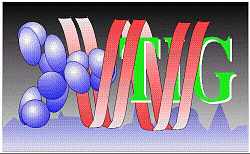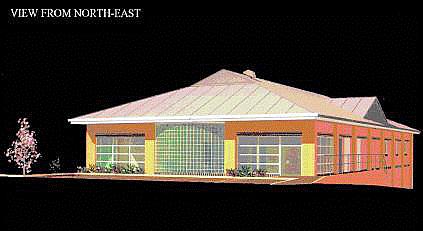
Therapeutic Immunology Group:
Monoclonal antibody projects at the TAC
CAMPATH-1* family
These antibodies have been extensively used in bone marrow transplantation.
CAMPATH-1 antibodies have been made in three different forms:
CAMPATH-1M (Rat IgM) - this was used for efficient depletion of T cells from bone marrow in order to avoid graft versus host disease.
CAMPATH-1G (Rat IgG2b) - this antibody can efficiently kill human lymphocytes after intra-venous injection and has been used to treat lymphomas, kidney graft rejection. It is now used to treat recipients of bone marrow transplants, especially when these are from unrelated donors where the risk of rejection is very high.
CAMPATH-1H (humanised IgG1) - this genetically engineered version of the CAMPATH-1 monoclonal antibody has been shown to be effective in preventing organ graft rejection episodes as well as for treating certain forms of leukaemia and autoimmune diseases such as multiple sclerosis and vasculitis.
CAMPATH-1H is licensed to Ilex Oncology who were given approval in 2001 by the FDA and the EMEA to market it as a treatment for chronic lymphocytic leukaemia (CLL) and are actively pursuing other indications. For more details of the commercial product see the CAMPATH Web Site.
Aglycosyl CD3 antibody
The monoclonal antibody OKT3 (developed by Ortho) against the human T cell receptor has proven very effective for treating kidney graft rejection, but has a number of unpleasant and potentially dangerous side effects. These side effects are due to the heavy chain Fc portion of the antibody binding to Fc receptors on the patients monocytes and B cells that then cause massive activation of T cells through their receptors. The antibody produced by the TAC has been humanised and had the Fc portion modified by genetic engineering such that it has no glycosylation and does not bind Fc receptors. After a successful trial for treatment of kidney transplant rejection, this antibody is currently being tested in patients recently diagnosed with Type I diabetes where it is hoped that re-induction of tolerance might prevent further loss of islet cell function.
CD4 antibody
There has been much work in model systems that shows that CD4 monoclonal antibodies can be used to induce specific transplantation tolerance, without depleting T cells and without the need for long term non-specific immunosuppression. The TAC has developed two different CD4 antibodies for the treatment of autoimmune diseases such as rheumatoid arthritis and vasculitis.
CD3 and CD4 antibodies, together with other technology associated with tolerance induction, have been licensed to TolerRx Inc. of Cambridge, USA.
CD18 antibody
A humanised CD18 antibody has been developed that recognises a family of molecules involved in how white blood cells adhere to blood vessels and traffic round the body. Trials of this antibody to treat autoimmune vasculitis and in kidney transplantation have been carried out with some encouraging results. This project is currently seeking a sponsor to carry out durther development.
Other projects
The TAC is engaged in a variety of aditional projects involving antibodies and recombinant proteins, with both commercial and non-commercial sponsors.

"Our aim is to provide the best antibodies for academic research"
Related topics:
Last Updated 30 June 2004 by Steve Cobbold